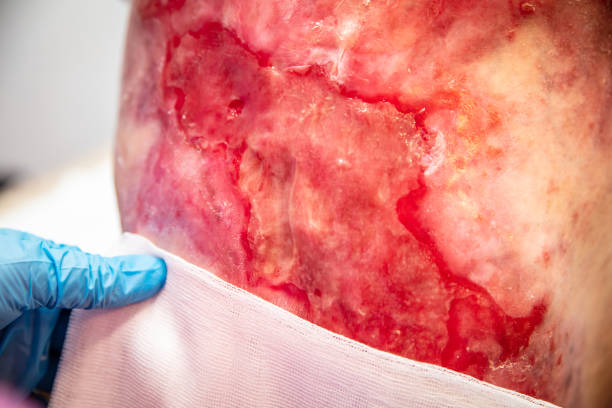Acanthosis nigricans (AN) may lead to skin pigmentation in areas such as the neck, armpits, elbows, under the breast, inner thighs, and groin. It is a common skin condition with visible implications for underlying medical issues. While the symptoms themselves pose no direct harm, addressing and improving acanthosis nigricans requires consideration.
Understanding the Causes of Acanthosis Nigricans
Acanthosis nigricans manifests as dark, rough skin resulting from thickening, hyperplasia, and increased pigmentation. The root cause lies in internal medicine, with skin hyperplasia stemming from the stimulation of growth factors in skin epithelial cells. Notably, the structure of insulin closely resembles these growth factors. In cases of pancreatic islet resistance, the body heightens insulin secretion to regulate blood sugar, leading to elevated insulin levels. Consequently, individuals may experience skin proliferation, thickening, coarseness, and pigmentation.
Association with Medical Diseases:
Acanthosis nigricans serves as a symptom of various medical conditions. According to the National Library of Medicine, 66% of obese individuals exhibit AN, with 40% displaying insulin resistance. Commonly observed in obese individuals and diabetics, particularly those with type 2 diabetes, not all individuals in these categories will necessarily develop AN. Those with type 1 diabetes, due to a congenital lack of insulin, do not experience this condition.
Other Diseases Linked to Acanthosis Nigricans:
- Polycystic Ovary Syndrome (PCOS): Many PCOS patients face insulin resistance, potentially leading to acanthosis nigricans.
- Hypothyroidism: Hypothyroidism, causing a slowdown in skin metabolism, may result in skin hyperplasia.
- Cushing’s Disease: Often triggered by steroid overdose, Cushing’s disease can elevate blood sugar, stimulate insulin secretion, and heighten the risk of acanthosis nigricans.
- Hormone Disorders: The U.S. National Library of Medicine links acanthosis nigricans to medications like niacin, oral contraceptives, hormonal therapy, estrogen drugs, and anti-AIDS drugs. Discontinuation of such medications typically leads to a gradual disappearance of AN.
- Cancer: linked to gastrointestinal cancers such as stomach or lymphoma, as well as prostate, breast, and ovarian cancer. While this skin condition can occur at any age, special attention is warranted if multiple instances appear alongside weight loss and clinical signs of age, as it may indicate cancer-related acanthosis nigricans.
By recognizing the diverse factors associated with AN, individuals can better understand its origins and potential implications for overall health
Effective Treatment Strategies for Acanthosis Nigricans:
To combat acanthosis nigricans, adopt a proactive approach involving both external and internal treatments.
External Treatment:
When discoloration or spots emerge on the skin, take swift action. Dermatologists employ creams, lasers, and peels to target and diminish the pigmentation, resulting in a visible improvement in affected areas.
Make weight loss a priority.
The foundational treatment for ANis weight loss. Actively engage in lifestyle modifications, including dietary changes and regular exercise. Exercise is not just beneficial for weight management; it also significantly contributes to an overall improvement in well-being.
Internal Treatment for Elevated Insulin Levels:
If high insulin levels are identified, consult a hormone specialist promptly. Receive targeted medications, such as metformin, to effectively counter insulin resistance. In coordination with external interventions, hormone specialists oversee internal treatments to enhance the effectiveness
Understanding the Link with Diabetes and Medications:
Recognize the pivotal role of diabetes in acanthosis nigricans. Additionally, be aware that certain medications can trigger this skin condition. If you’re experiencing symptoms without diabetes but are on medication, consult a doctor promptly. This proactive step allows for a reevaluation of your medication, ensuring that potential exacerbating factors are promptly addressed.
In summary, take a proactive and collaborative approach to treating AN. Dermatologists and hormone specialists work together to provide external and internal interventions. Combine these with lifestyle adjustments for optimal results. Regular communication with healthcare professionals is key for tailored guidance and successful management of this skin condition.

